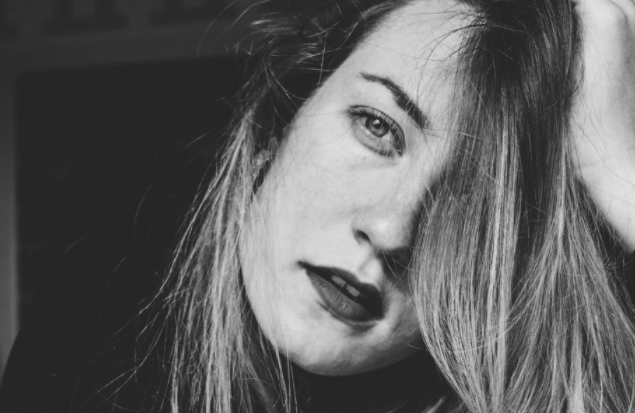Your social media feed may be inundated with black and white selfies at the moment. Women from around the world are uploading selfies of themselves with a black and white filter as a symbol of empowerment and women supporting women, with #ChallengeAccepted written somewhere in the caption.
The images continue to spread as it encourages the sharer to nominate friends they are inspired by, who in turn upload their own photo.
While this is a lovely display of solidarity, the meaning behind the images is far deeper than a cute picture. Many of the images, while uploaded with good intentions, fail to mention the real reason why the challenge has made a comeback.
The black and white photo challenge has been around for many years and is seeing a new wave on social media. The most recent resurgence in the trend pertains to raising awareness about femicide in Turkey. It is representative of the black and white photos on the news of women who have been murdered.
In 2016, black and white photos were originally uploaded with #ChallengeAccepted to create and share cancer awareness. Taylor Lorenz, an internet culture reporter for the New York Times, wrote an article on this topic. She contacted both Instagram and Facebook about the origin of the hashtag who confirmed it began in 2016.
“Black-and-white selfies have been leveraged in support of various vague causes over the years, ultimately having no measurable impact on any of them,” wrote Lorenz in the article and in a series of Tweets.
“Turkey is just one recent manifestation of it,” she said.
Women have recently been posting black-and-white selfies on Instagram with the hashtag “challenge accepted” in the name of female empowerment. The trend “allows users to feel as if they’re taking a stand while saying almost nothing,” writes @taylorlorenz. https://t.co/I7hcvPRD88
— The New York Times (@nytimes) July 28, 2020
In an Instagram post explaining the article she said: “What women in Turkey have turned this into is great, but they did not start this trend or its more recent resurgence in the US, which spread here from Brazil.”
Those who have uploaded the images have probably failed to mention that the latest resurgence of the challenge is to raise awareness on the worrying statistics of femicide in Turkey, where the rate has increased exponentially amid lockdown.
Much like in South Africa, Turkish women are being brutally murdered at the hands of men. There has been a noticeable increase in these murders and disappearances in Turkey as a result of lockdown.
The case that changed the public tide is that of Pinar Gültekin, who went missing on July 16. Five days later, her ex-boyfriend led police to her strangled and partially burned body that had been stuffed inside an oil drum. Her killer is now in custody. Much like the horrific murder of 19-year-old Uyinene Mrwetyana in Cape Town last year, Gültekin’s killing has sparked a movement against femicide in Turkey.
The American University Turkish Cultural Club has taken a stand against these incidents and is aiming to bring as much pbulic attention to this brutality as possible. In an Instagram post, the page wrote:
“Over the past years, reports of violence against women have skyrocketed [in Turkey]. Well over 1 000 women have been killed in gender-based violence since 2010. A deeply conservative government has discouraged/ strangled outcry, activism and awareness surrounding the issue. Then came this year.
“The combined effects of deepening toxic masculinity, social media trolling, a tanking economy & COVID-19 quarantines have led Turkish women into their bloodiest year on record. In July alone, 40 women have been murdered so far – almost always by their close male relatives.”
“When killings are reported (many are written off/ hidden), the defendant usually is either released soon or receives a comically light sentence. This is the case for all women in Turkey – women who cover their hair/ women who don’t, young/ old women, Kurdish women, single women & Queer/ Trans women especially.”
The post continues: “Lets talk about the thousands of black, brown & indigenous girls/ women/ two-spirit people who are missing/ dead as well.”
The challenge was thus reborn to show solidarity for the woman who have died. It shows that one day, any one of these images may be plastered across news outlets as the latest case of femicide.
If you are nominated, you should explain the real reason behind the resurgence of the movement. Don’t just jump on the bandwagon.
Ladies, instead of posting that hot black-and-white selfie, why don’t we ease into feminism with something low stakes, like cutting off your friend who’s an abuser?
— ????? ℌ??? ???????? (@alanalevinson) July 27, 2020
To make this a real challenge with action:
– Nominate your friends to support female-owned business
– Donate to organisations that support members of the trans/ queer community
– Donate or volunteer at crisis centres for abused women
– Support black, indigenous and people of colour (BIPOC)-owned business
– Celebrate prominent female figures in history
– Share your favourite female author, artist, musician, baker and challenge your friends to do the same
Education is empowering, so let’s turn this new wave of #ChallengeAccepted into a real, change-inspiring trend that will be a far more impactful way to support women, rather than simply posting a selfie.
Picture: Unsplash

